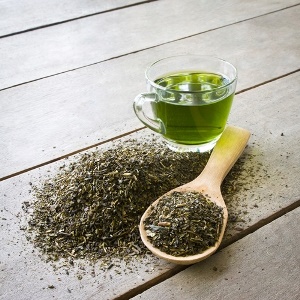
Besides water, do you know what is the world’s most popular beverage? Is it coffee, tea, Coca-Cola or something else? You guessed it – tea is the correct answer.
A fashionable drink
Legend has it that tea was discovered by the Chinese emperor Shen Nung more than four thousand years ago when some leaves from a nearby tree blew into his boiling water. It was, however, only much later, during the Tang dynasty (618 – 907 AD), that tea became the national drink of China.
Shortly after that it was introduced to Japan where it became a part of Japanese culture, as can be observed in the famous Tea Ceremony.
Read: Tea tips
The first Europeans to discover tea were probably Portuguese traders. In the early seventeenth century the Dutch brought tea to Europe where it soon became a fashionable drink. From Holland it spread to other European countries, and the first dated reference to tea in Britain was from a London newspaper in 1658.
The rest is history, as the saying goes, and nowadays there is hardly a corner of the world where tea is not enjoyed in some form or another.
All types of tea (excluding herbal teas like chamomile, peppermint and rooibos) are produced from the plant Camellia sinensis and the varieties differ only according to where they are grown, when they are picked and, most importantly, the way they are processed. There are four main categories of tea:
White tea is made from the buds and youngest leaves or the tea plant, which are steamed and dried. It is minimally processed and only contains a small amount of caffeine.
Green tea is produced from tea leaves that are dried and heated, by either roasting or steaming, to prevent the green tea from fermenting.
Oolong tea leaves are bruised after picking and pan fried after partial fermentation. Oolong tea has a full-bodied taste and a sweet aroma.
Black tea is a fully fermented tea. The leaves are withered and rolled and then fermented for an extended period. The leaves are then fired which turns them black. Black tea has a strong, full-bodied flavour.
Green tea is number one
In Western countries most people drink black tea, but worldwide the most popular tea is green tea, mainly because it is preferred in Asian countries.
Read: Green tea (Camellia sinensis)
In traditional Eastern medicine green tea is used among other things to aid digestion, improve heart function, control bleeding and heal wounds. It is also considered to improve mental health.
Green tea is made from unfermented leaves and contains high concentrations of powerful antioxidants called polyphenols. According to the University of Maryland Mecial Centre antioxidants fight free radicals that damage DNA and cause cell death.
Many scientists believe that free radicals contribute to the ageing process as well as the development of a number of health problems, including cancer and heart disease.
Science vs. folklore
There are many folk remedies and traditional medicines reputed to cure or alleviate the symptoms of diseases and ailments. Some work, but many are “old wives tales”, completely based on superstition and unlikely to stand up to scientific scrutiny. Two extreme examples are the notion that urine cures acne and that wrapping a dirty sock around your neck will cure a sore throat.
Read: Standardisation of traditional medicine opposed
Before a medicine or remedy is accepted by Western or allopathic medicine it is subjected to so-called empirical testing. Empirical evidence is based on the outcome of an experiment, which means that the medicinal value of any remedy will only be accepted after passing rigorous scientific tests.
According to tradition or hearsay, green tea can:
- Lower your risk of cardiovascular disease
- Help you lose weight
- Cure or prevent cancer
- Reduce the risk of stroke
- Cure or prevent type 2 diabetes
- Boost your memory
- Make you cleverer
- Improve physical performance
- Lower your risk of dementia
- Lower your risk of infection
Is there any proof?
Although most of the above claims seem somewhat far-fetched, there are some studies confirming the disease-fighting properties of green tea.
Thumbs-up for stroke and CVD
One of the most extensive studies involving the health benefits of green tea was conducted in Japan in 1995 and 1998. The study, The Impact of green Tea and Coffee Consumption on the Reduced Risk of Stroke Incidence in Japanese Population, involved 82 369 subjects, aged 45 to 74 years, without cardiovascular disease or cancer.
The results of this study indicated that “higher green tea or coffee consumption reduced the risks of CVD and stroke subtypes” and the conclusion was: “Higher green tea and coffee consumption were inversely associated with risk of CVD and stroke in general population.”
Bad news for cancer prevention
A study by the Cochrane Gynaecological Cancer Group, published online 8 July 2009 critically assessed “any associations between green tea consumption and the risk of cancer incidence and mortality”, and their conclusion was: “There is insufficient and conflicting evidence to give any firm recommendations regarding green tea consumption for cancer prevention.”
Good for cognitive functioning
In an investigation by the University of Basel in 2014, titled Green tea extract enhances parieto-frontal connectivity during working memory processing, the authors attempt to ascertain whether “the intake of green tea extract modulates effective brain connectivity during working memory processing and whether connectivity parameters are related to task performance”.
Their conclusion was positive, providing evidence for the “beneficial effect of green tea on cognitive functioning, in particular, on working memory processing at the neural system level...”
Inconclusive
These three examples are by no means exhaustive, and although there is a certain amount of proof that green tea has health benefits, on the whole most experts still seem unconvinced and regard the evidence as, at best, inconclusive.
Read more:
Green tea no breast cancer help




 Publications
Publications
 Partners
Partners














